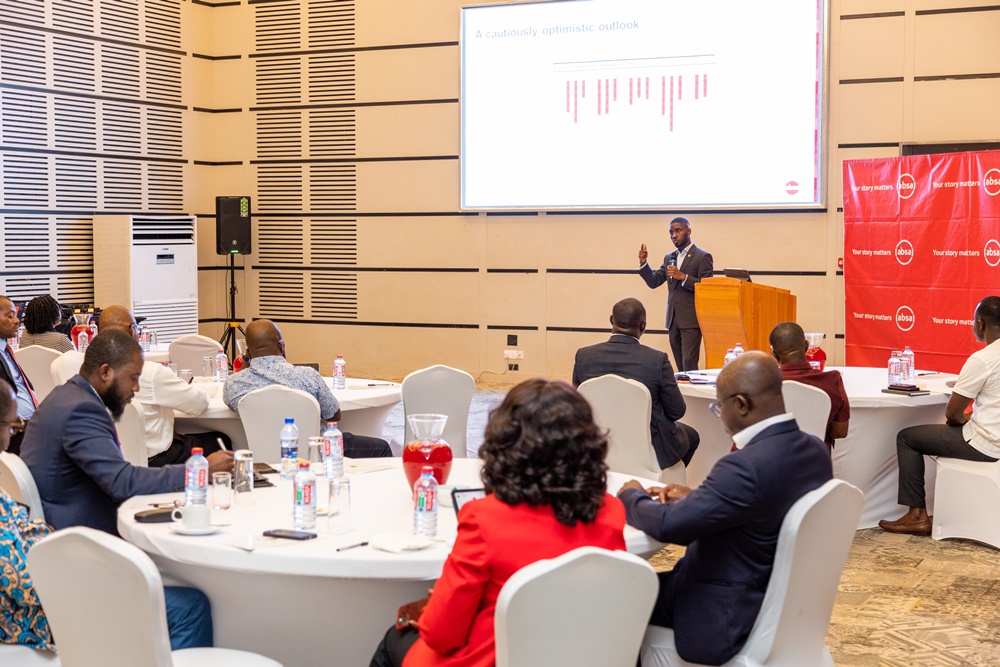
By Prof. Samuel Lartey
In a bold and strategic move, the Government of Ghana has infused GH?1.4 billion, comprising cash and bonds into the National Investment Bank (NIB), one of the country’s oldest state-owned financial institutions. This capital injection is not only a crucial step in resuscitating a struggling bank but also a major milestone in Ghana’s ongoing economic recovery plan.
While the recapitalisation is partly motivated by a need to meet the International Monetary Fund’s (IMF) conditions for the fourth review of Ghana’s $3 billion Extended Credit Facility, it holds broader implications for customer satisfaction, public sector operations, investor confidence, and the everyday Ghanaian household.
This move aims to restore NIB’s capital adequacy, improve customer satisfaction through digital upgrades and improved service delivery, and strengthen the bank’s ability to support government programmes as set in the Ghana Reset Agenda. It also boosts investor confidence by signalling Ghana’s commitment to financial sector reforms, and it provides renewed credit access to SMEs and households, fostering financial inclusion.
While the intervention offers liquidity and operational stability, it adds to Ghana’s debt burden, which stood at GH?658.6 billion (66.4% of GDP) as of March 2025, and underscores the need for prudent fiscal management to ensure long-term sustainability.Bottom of Form
Restoring Bank Efficiency and Customer Satisfaction
Once a pillar of industrial financing in Ghana, NIB had, over the years, become plagued by capital inadequacy, non-performing loans, and outdated service models. The recapitalisation breathes new life into the institution, enabling it to:
- Upgrade its banking infrastructure and digital platforms,
- Attract and retain skilled financial professionals, and
- Introduce modern lending, risk management, and customer service systems.
As capital levels rise, the bank can restore its operational efficiency and improve turnaround times on loan processing, customer onboarding, and product delivery. For the first time in years, clients can expect competitive banking services tailored to support small and medium enterprises (SMEs), agribusinesses, and manufacturing. Improved liquidity also means depositors can enjoy enhanced security and accessibility—critical ingredients for rebuilding trust.
Catalysing Government Business and Industrial Policy
As a development finance institution (DFI), NIB is uniquely positioned to support government-backed industrial and economic transformation programmes. With this financial lifeline:
- The Ministry of Trade and Industry can channel long-term, low-interest capital into manufacturing, pharmaceuticals, and agro-processing.
- Infrastructure and procurement payments involving ministries and SOEs can flow more efficiently through a more liquid and stable NIB.
- Government-backed credit schemes, like the 1D1F (One District, One Factory) initiative, can be financed with better structured and reliable instruments.
This makes NIB a more effective vehicle for public-private partnerships, policy implementation, and local economic development, helping the government reduce its over-reliance on external borrowing and foreign banks for project financing.
Boosting Investor Confidence in Ghana’s Financial System
Ghana’s financial sector has weathered turbulence from the 2017–2019 banking clean-up to post-COVID-19 fiscal strains. For many investors, the health of state-owned banks is a proxy for broader macroeconomic stability.
The recapitalisation of NIB signals:
- Government’s commitment to banking sector resilience and reform,
- Readiness to meet IMF conditionalities, and
- Continued backing for development finance institutions.
Foreign investors, particularly those eyeing infrastructure, industrial parks, or green energy projects, will take this as a sign that Ghana is serious about improving capital market depth and reducing sovereign risk. It also opens the door for possible co-financing deals or public listing of NIB shares in the future, deepening Ghana’s capital markets.
Uplifting NIB’s Clients and Ghanaian Households
For thousands of Ghanaian SMEs, cooperatives, traders, and salaried workers, NIB’s decline over the years meant limited access to affordable credit and secure banking services. This recapitalisation, if managed prudently, promises:
- Increased access to credit for local businesses, farmers, and artisans—enabling production, job creation, and income stability.
- Reduced lending rates over time as the bank’s cost of capital stabilises.
- Confidence among savers and pensioners that their deposits are safe and retrievable, even during times of economic uncertainty.
- Increased product innovation, including digital savings platforms and youth-focused entrepreneurial loans.
Ultimately, a healthy NIB means more financial inclusion and economic empowerment—especially for households that remain underserved by traditional commercial banks.
Conclusion
From Survival to Sustainability
The Government of Ghana’s GH?1.4 billion recapitalisation of the National Investment Bank is more than a bailout, it is a turning point in the country’s efforts to anchor economic growth on strong, indigenous financial institutions. While risks remain especially around governance and execution; this initiative provides a golden opportunity to reimagine NIB’s relevance in Ghana’s development journey.
If implemented with discipline and transparency, the recapitalisation will not only transform NIB into a competitive and customer-centric bank but also set in motion a ripple effect, restoring faith in Ghana’s financial system, supporting government business, and ultimately improving livelihoods across Ghanaian households.
Ghana is not just banking on money, it is banking on trust, transformation, and a new chapter of sustainable growth.
The post Banking on confidence appeared first on The Business & Financial Times.
Read Full Story
















Facebook
Twitter
Pinterest
Instagram
Google+
YouTube
LinkedIn
RSS